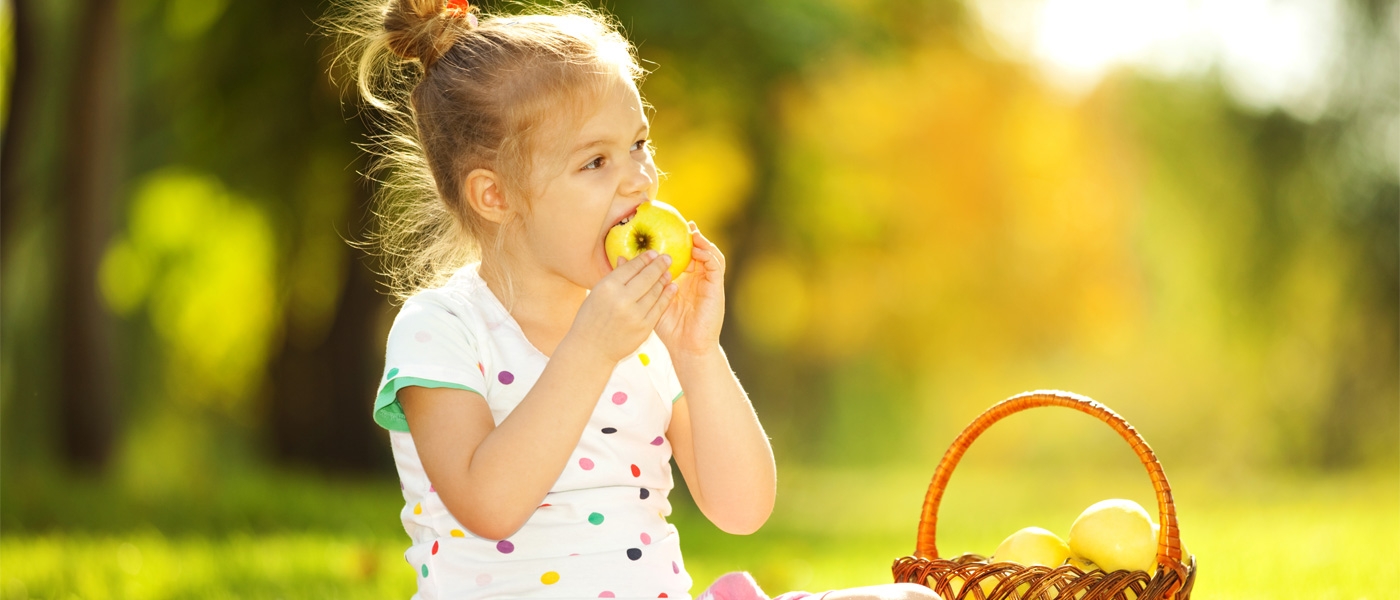During your pregnancy you provided everything your baby needed – a warm, comfortable place to grow, and nourishment whenever it was required. Iron was essential for you and your baby then, and it continues to be vital for the healthy development of your baby now.
There are some things that mean your baby is more likely to have low iron levels, or develop iron deficiency anaemia:
- If you were iron deficient during your pregnancy
- If you smoked during your pregnancy
- If you have diabetes
- If your baby was premature
- If you exclusively breastfeed for more than 4-6 months1
Iron and the first six months
In the last trimester of your pregnancy your baby stored lots of iron to use to grow after it is born. These stores are vital because there is not much iron in breastmilk,2 and your baby’s gut is still developing so is not ready to absorb iron from food.3 After 4-6 months your baby will have used up its stores of iron, so it will need to start getting iron from its diet.4
If your baby was delivered early they may not have had as much time to store iron before they were born as they needed.4 Also, if you were iron deficient during the last trimester of your pregnancy you may want to talk to your doctor about suitable supplements for your baby, especially if you are breastfeeding.
Iron for growth
Your growing baby actually needs more iron in its diet than dad, and all to support rapid growth during their first year.
| Age | Amount of iron needed a day |
|---|---|
| 6-12 months | 11 mg |
| 1-3 years | 7 mg |
| Adult, non-pregnant woman | 18 mg (due to her periods) |
| Adult, male | 8 mg |
Table: the amount of iron your baby needs in comparison with an adult4
If your baby was full-term and you are breastfeeding, it is recommended that, starting at 4 months, you give them an iron supplement of 1 mg for every kg they weigh every day, until they are eating enough iron-rich foods.5
Many foods for babies are fortified, especially cereals. However, it is also good to introduce foods that are naturally high in iron, such as red meat. Meat is not only an excellent source of iron, but also other vitamins and nutrients such as zinc.6 In one study, children in the UK who had meat in their diets showed greater development of physical skills than those without.6
Iron for learning and behaviour
Not only is your baby growing out of their clothes faster than you can buy them, their brains are also growing and developing at an amazing rate. Your baby will be learning to recognise you, smile at you, roll over, and learning how to put food (and plenty of other objects) in their mouths.
All this learning means your baby’s brain is growing so fast that it doubles in size in the first year, and is almost the size of an adult brain by the time they are two.3
Being iron deficient as the brain is growing can affect many areas of your child’s development, including hand/eye coordination, social and emotional skills, and IQ.7 Low iron can also affect how quickly your baby learns to recognise your face or tell your voice from a stranger’s.3
Some of the effects of iron deficiency can be fixed by getting your child’s iron levels back up to normal. However, some effects can be long-lasting.7 Making sure your child has enough iron from now on, and plenty of opportunities for learning, will help to give them the best start in life.
Iron is essential whenever your kids are growing fast. Learn more about why iron continues to be important as they head towards school and in meeting the specific challenges of the teenage years.
Too much iron can also be harmful to your baby so make sure you talk to your doctor before giving them a supplement.
- Rao R, Georgieff MK. Iron in fetal and neonatal nutrition. Semin fetal neonatal med. 2007;12(1):54-63. Doi:10.1016/j.siny.2006.10.007.
- Ziegler EE, Nelson SE, Jeter JM. Iron supplementation of breastfed infants. Nutr rev. 2011;69 suppl 1:s71-7. Doi:10.1111/j.1753-4887.2011.00438.x.
- Radlowski EC, Johnson RW. Perinatal iron deficiency and neurocognitive development. Front hum neurosci. 2013;7:1-11. Available at: http://www.pubmedcentral.nih.gov/articlerender.fcgi?artid=3779843&tool=pmcentrez&rendertype=abstract. Accessed september 30, 2013.
- Baker RD, Greer FR. Diagnosis and prevention of iron deficiency and iron-deficiency anemia in infants and young children (0-3 years of age). Pediatrics. 2010;126(5):1040-50. doi:10.1542/peds.2010-2576.
- McDermid J, Lönnerdal B. Iron. Adv Nutr. 2012;(1):532-533. doi:10.3945/an.112.002261.Table
- Hambidge KM, Sheng X, Mazariegos M, et al. Evaluation of meat as a first complementary food for breastfed infants: impact on iron intake. Nutr Rev. 2011;69 Suppl 1:S57-63. doi:10.1111/j.1753-4887.2011.00434.x.
- Lozoff B, Beard J, Connor J, Felt B, Georgieff M. Long-lasting Neural and Behavioral effects of iron deficiency in infancy. Nutr Rev. 2006;64:S34-S91.

